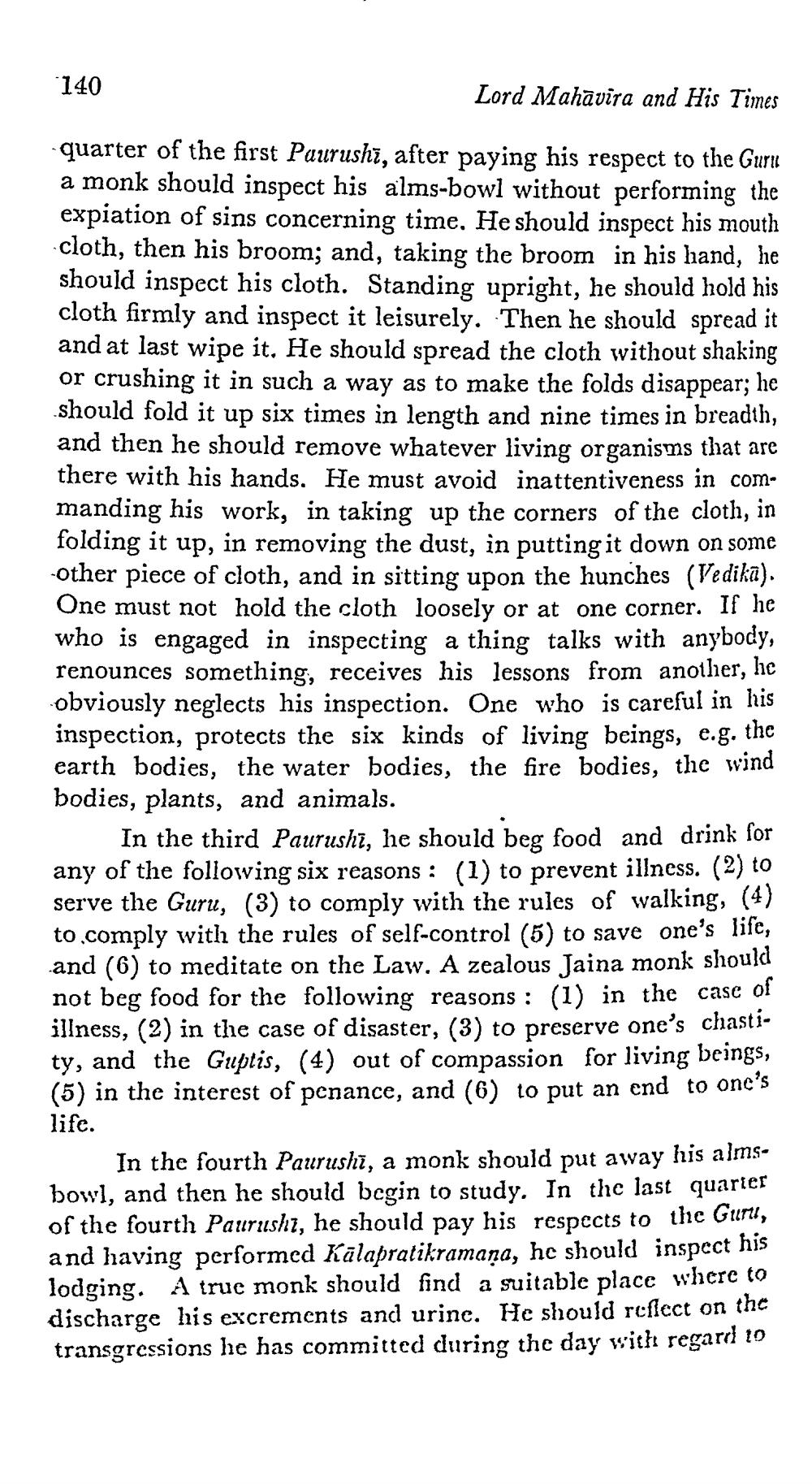________________
140
Lord Mahavira and His Times
quarter of the first Paurushi, after paying his respect to the Guru a monk should inspect his alms-bowl without performing the expiation of sins concerning time. He should inspect his mouth cloth, then his broom; and, taking the broom in his hand, he should inspect his cloth. Standing upright, he should hold his cloth firmly and inspect it leisurely. Then he should spread it and at last wipe it. He should spread the cloth without shaking or crushing it in such a way as to make the folds disappear; he should fold it up six times in length and nine times in breadth, and then he should remove whatever living organisms that are there with his hands. He must avoid inattentiveness in commanding his work, in taking up the corners of the cloth, in folding it up, in removing the dust, in putting it down on some other piece of cloth, and in sitting upon the hunches (Vedika). One must not hold the cloth loosely or at one corner. If he who is engaged in inspecting a thing talks with anybody, renounces something, receives his lessons from another, he obviously neglects his inspection. One who is careful in his inspection, protects the six kinds of living beings, e.g. the earth bodies, the water bodies, the fire bodies, the wind bodies, plants, and animals.
In the third Paurushi, he should beg food and drink for any of the following six reasons: (1) to prevent illness. (2) to serve the Guru, (3) to comply with the rules of walking, (4) to comply with the rules of self-control (5) to save one's life, and (6) to meditate on the Law. A zealous Jaina monk should not beg food for the following reasons : (1) in the case of illness, (2) in the case of disaster, (3) to preserve one's chastity, and the Guptis, (4) out of compassion for living beings, (5) in the interest of penance, and (6) to put an end to one's life.
In the fourth Paurushi, a monk should put away his almsbowl, and then he should begin to study. In the last quarter of the fourth Parrushi, he should pay his respects to the Gurul, and having performed Kālapratikramana, he should inspect his lodging. A truc monk should find a suitable place where to discharge his excrements and urine. He should reflect on the transgressions he has committed during the day with regard 10




